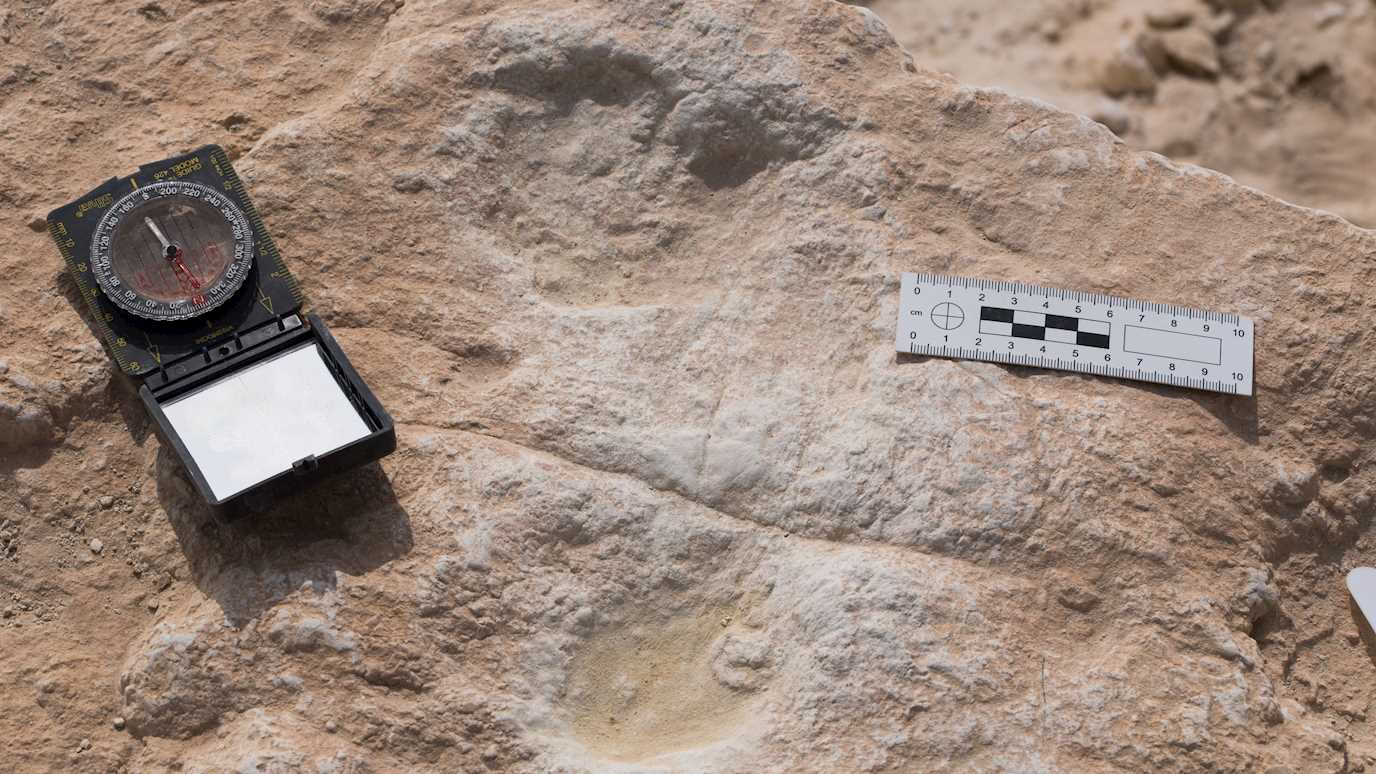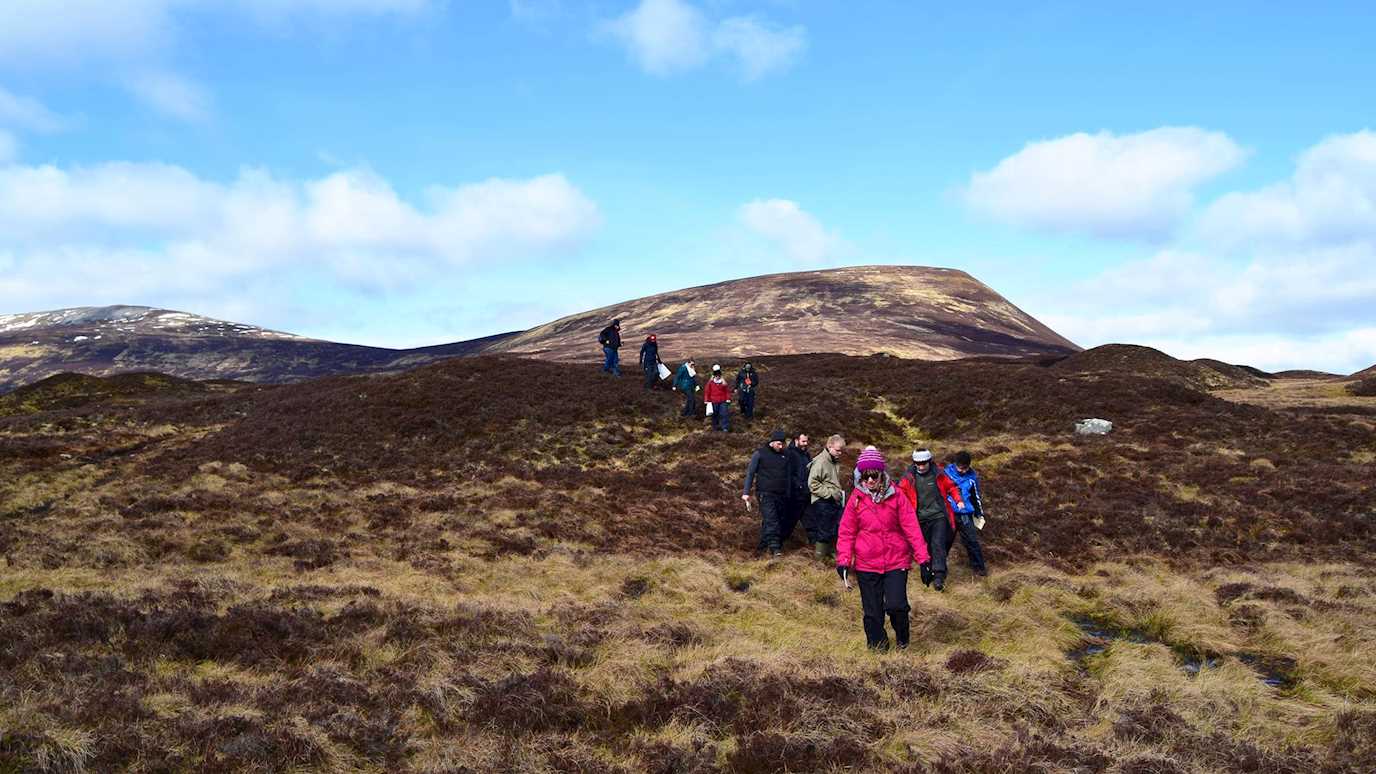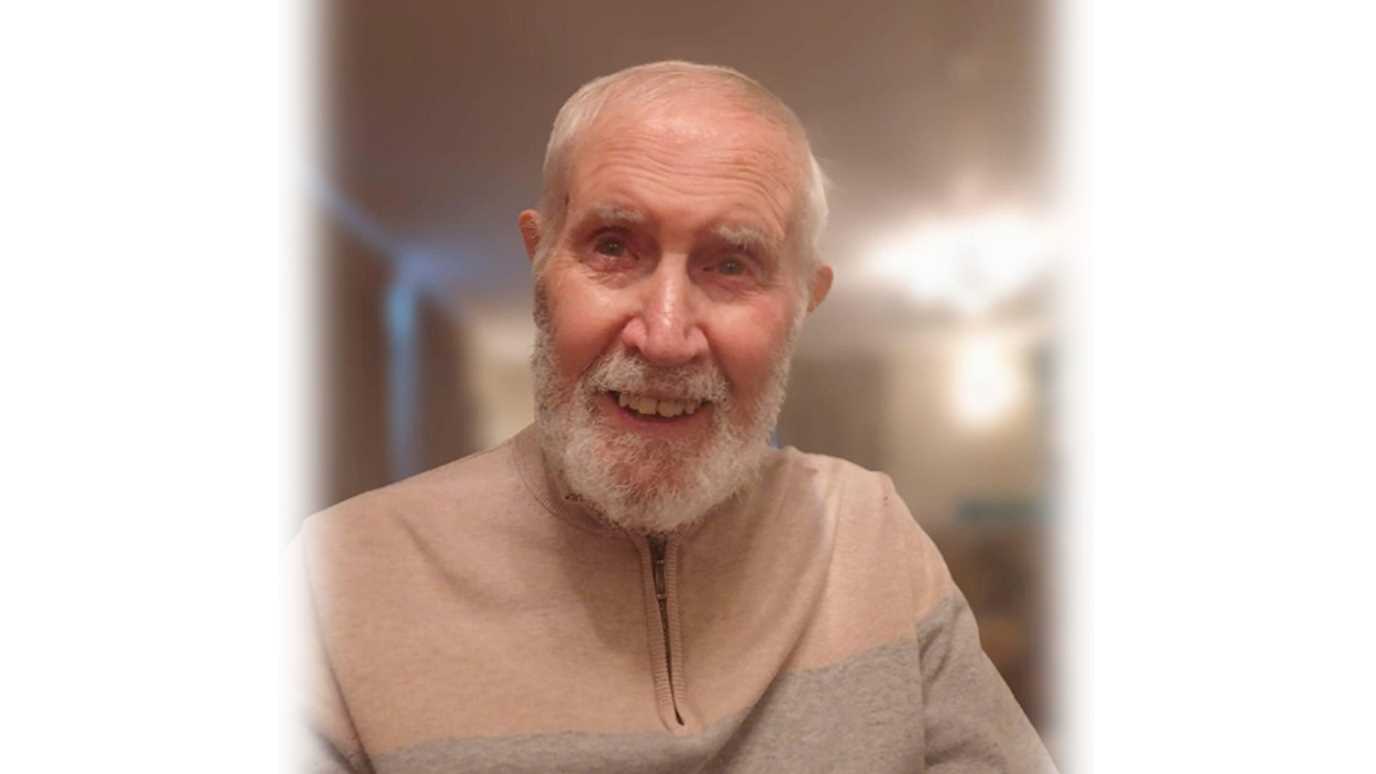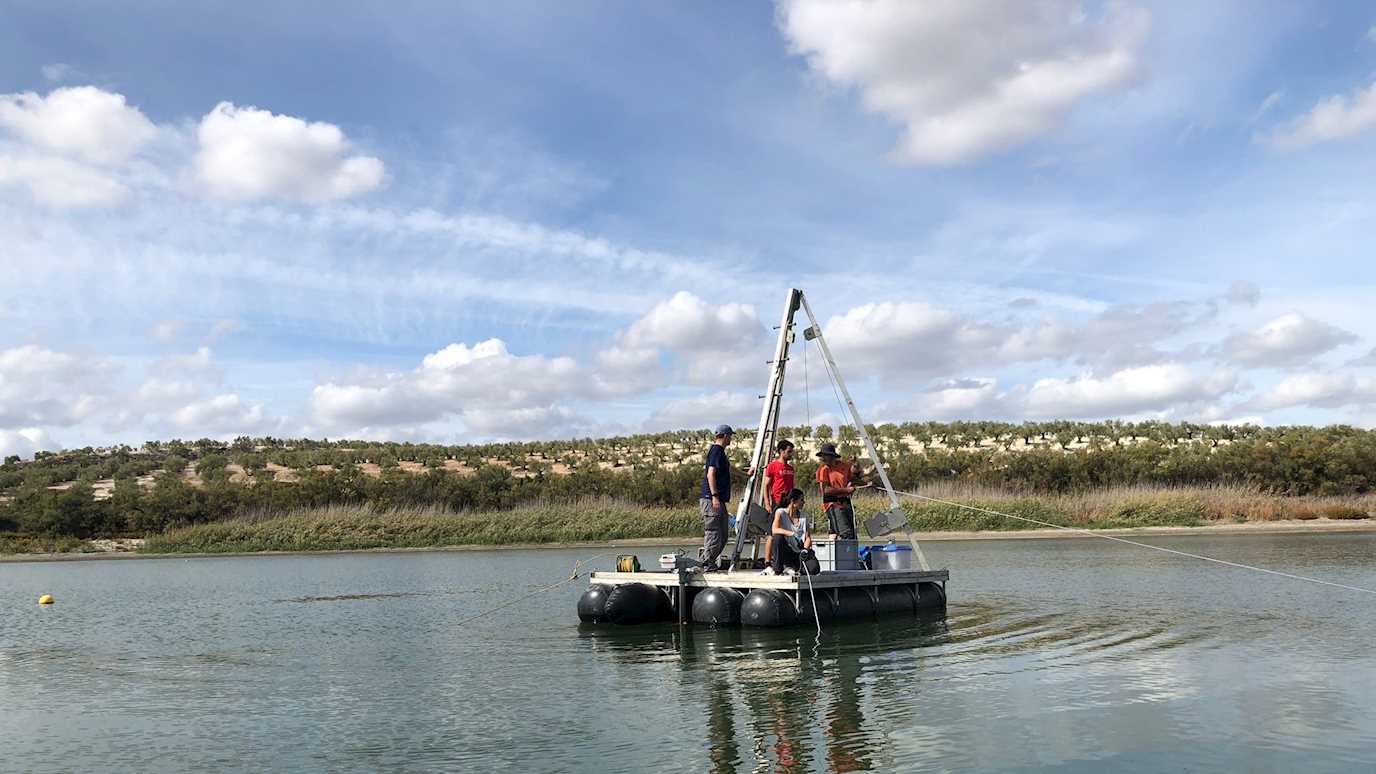PhD candidate Richard Clark-Wilson along Professors Simon Armitage and Ian Candy from the Department of Geography are part of an international team investigating human prehistory and environmental change on the Arabian Peninsula.

Their latest research, in collaboration with multiple international partners, presents ~120,000 year old fossilised footprints left by Homo sapiens and other animals on an ancient lakebed in the Nefud Desert in northern Arabia. The research argues that these footprints present the earliest evidence for our species on the Arabian Peninsula, while they also provide a wealth of information on ancient human-animal-environment interactions.
Richard Clark-Wilson, at Royal Holloway, said: “At certain times in the past, the deserts that dominate the Arabian Peninsula were transformed into expansive grasslands with permanent freshwater lakes and rivers. These footprints show that during one of these phases, human and animal populations migrated together, to inland Arabia.”
To find the age of the fossil footprints, researchers from Royal Holloway, dated sand grains buried within the ancient lake deposits.
Professor Simon Armitage from Royal Holloway, explains: “Sand grains act as natural clocks as they record the time elapsed since they were last exposed to sunlight. Once the sands are buried in the lake sediments, they are protected from sunlight and the natural clock begins ticking. We believe that the ancient lake and associated footprints to be about 120,000 years-old.”
Professor Ian Candy from Royal Holloway, said: “The age of the footprints is of interest as they date to a period known as the last interglacial, a time of relatively humid conditions across the region and an important moment in human prehistory. Environmental changes during the last interglacial would have allowed humans and animals to disperse across otherwise desert regions, which normally act as major barriers during the less humid periods, such as today.
“These findings suggest human movements beyond Africa during the last interglacial extended into Northern Arabia, highlighting the importance of this region for the study of human prehistory.”
The ground-breaking research has attracted widespread attention, featuring in National Geographic and The Guardian. You can also read the original paper here.
Congratulations to Richard and team!

























